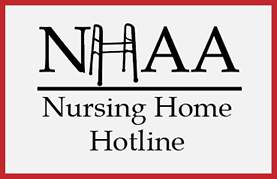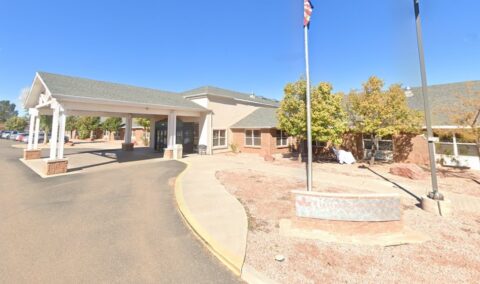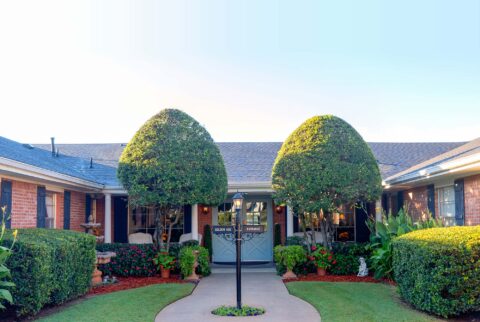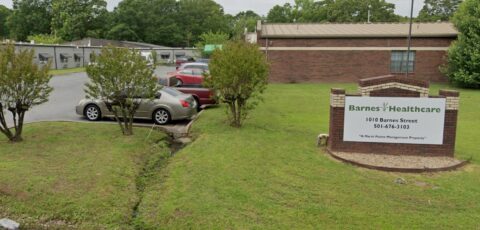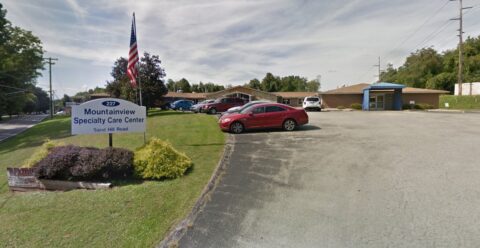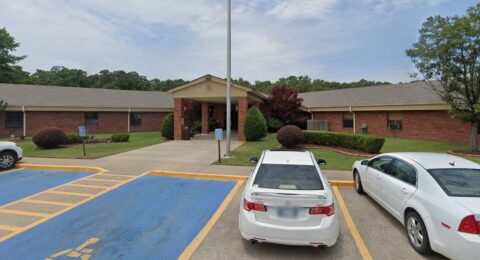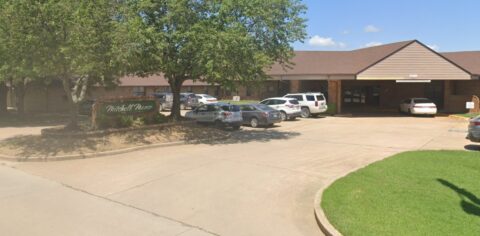In The News:
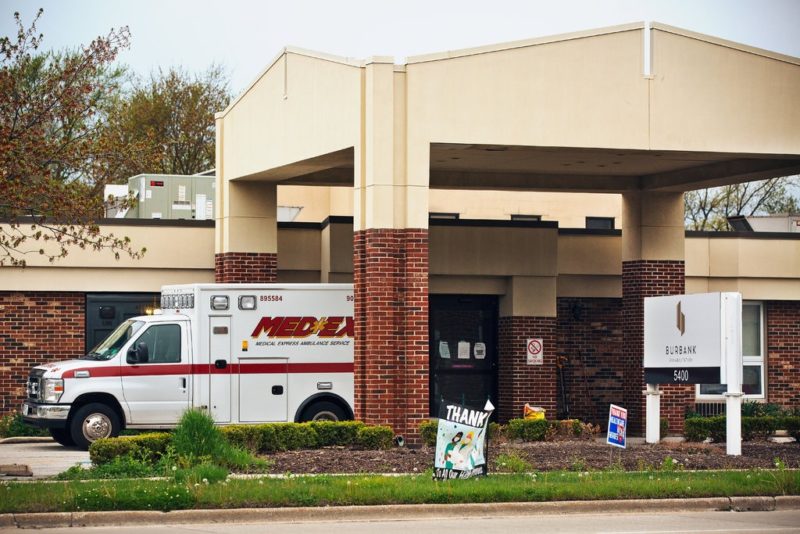
When the pandemic struck, the majority of the nation’s nursing homes were losing money, some were falling into disrepair, and others were struggling to attract new occupants, leaving many of them ill equipped to protect workers and residents as the coronavirus raged through their properties.
Their troubled state was years in the making. Decades of ownership by private equity and other private investment firms left many nursing homes with staggering bills and razor-thin margins, while competition from home care attendants and assisted-living facilities further gutted their business. Even so, many of their owners still found creative ways to wring profits out of them, according to an analysis of federal and state data by The New York Times.
In many cases, investors created new companies to hold the real estate assets because the buildings were more valuable than the businesses themselves, especially with fewer nursing homes being built. Sometimes, investors would buy a nursing home from an operator only to lease back the building and charge the operator hefty management and consulting fees. Investors also pushed nursing homes to buy ambulance transports, drugs, ventilators and other products or services at above-market rates from other companies they owned.
These strategies paid off handsomely for investors, but they forced nursing homes to skimp on quality. For instance, for-profit nursing homes — roughly 70 percent of the country’s 15,400 nursing homes and often owned by private investors — disproportionately lag behind their nonprofit counterparts across a broad array of measures for quality, The Times found. Also, they are cited for violations at a higher rate than nonprofit facilities.
The toll of putting profits first started to show when the outbreak began. No nursing home could be completely prepared for a pandemic as devastating as Covid-19, but some for-profit homes were particularly ill equipped and understaffed, which undercut their ability to contain the spread of the coronavirus, according to interviews with more than a dozen nursing home workers and elder-care lawyers.
The pandemic “has brought a lot of these issues to the forefront,” said David Grabowski, professor of health care policy at Harvard Medical School. “With this huge health crisis and economic downturn, we are all of a sudden seeing how risky it is to have the ownership split between the real estate side that has the most valuable asset and the operator, who is left with much less.”
Controlling the real estate gives investors, including real estate investment trusts, leverage to raise rents. Separating the real estate from the operating business can also help limit liability in wrongful-death lawsuits, because the latter typically has little cash and few assets.
“The structure is designed to keep liability on the company that has the fewest assets and the most debt,” said William Murray, a plaintiffs lawyer who specializes in suing nursing homes.
Private equity firms and other investors first gravitated to nursing homes more than a decade ago, betting that aging baby boomers would create demand irrespective of economic cycles and counting on a steady stream of Medicare and Medicaid reimbursements.
A recent report on private equity buyouts of nursing homes, which studied 119 transactions from 2000 to 2017, said private equity owners tended to put “high-powered profit maximizing incentives” first. The researchers found that after private equity stepped in, nursing staff hours per patient fell 2.4 percent, and staff quality as measured by federal regulators fell 3.6 percent.
“The quality of care declines after the private equity buyout, which seems to reflect staffing cuts,” said one of the report’s authors, Sabrina T. Howell, assistant professor of finance at New York University’s Stern School of Business.
Ruthie Moore, a 68-year-old certified nursing assistant who works at Burbank Rehabilitation Center, a for-profit nursing home in Illinois owned by a prominent local investor, said she had been overwhelmed with patients even before the pandemic. The facility provided below-average staffing that was also highly inconsistent, records show. On some days, there was one certified nursing assistant for every 10 residents, according to payroll records. On other days, there was one for every 19.
Things got much worse when the virus hit, Ms. Moore said. Residents, including ones with possible symptoms of Covid-19, were mixing with other patients. Personal protective equipment was scarce, and members of the staff were told to wear the same mask for up to two weeks, she said.
Six residents of the Burbank facility have died of Covid-19 and 41 others have fallen sick, according to local reports citing state health officials. The facility gets a one-star rating — the lowest ranking in the federal government’s five-star rating system for nursing home care. In a document filed with federal regulators for 2018, Burbank’s operator listed assets of $4.4 million and liabilities of $10 million.
“Had we had more staff and protective equipment, there would have been fewer deaths,” said Ms. Moore, who recently began showing symptoms and is awaiting a diagnosis.
Burbank’s owner is a Chicago-area investor, William Rothner. He and his family run a network of companies that have stakes — owning a piece of either the operating business or the building — in at least 60 nursing homes across the country, according to disclosures and other documents. Companies owned by Mr. Rothner also provide ventilators, pharmaceuticals, management services and payroll services to many of those facilities, according to financial filings with Illinois.
Most of the nursing homes in which Mr. Rothner has an interest in Illinois reported a net loss from operations in 2018, regulatory filings show. For instance, the Parc at Joliet, which has had at least seven coronavirus-related deaths, reported an operating loss of $714,000. But other companies that Mr. Rothner owns charged the home $1.4 million in rent as well as $138,000 in professional fees and $335,000 in fees to an affiliated pharmaceutical supply company, among other charges, according to those filings.
Mr. Rothner said in an email that there had been no “recent citations for inadequate staffing” and “no valid assertions or claims on inadequate P.P.E.” at Burbank. He also said his firm, Altitude Health Services, monitored management fees taken by the separate firms that run the nursing homes to make sure they were not excessive. He added that his firm provided ancillary services at competitive prices that were often lower than other companies and complied with all regulations.
Mr. Rothner’s company also owns the buildings for two nursing homes in Sussex County, N.J., where more than 60 residents have died of Covid-19 and where 17 of the bodies were hidden in a small on-site morgue. His company leases the facilities for about $8 million a year to Alliance Healthcare, which runs the nursing homes.
On Thursday, federal health regulators said they had fined the operator $220,000, and that the fine could keep growing until the problems are remedied. Specifically, regulators found that one of the facilities was not following infection control safety practices and guidance recommended by federal officials during the pandemic.
The nursing home industry is pushing for broad immunity in the wake of the pandemic. So far, 16 states, including New York, New Jersey, Michigan, Georgia and Illinois, have already approved measures granting immunity from lawsuits — a development that worries longtime critics of the industry.
“A lot of these nursing homes are trying to get immunity because of Covid, and that is really scary because some of these companies are so negligent,” said Charlene Harrington, a professor emerita of nursing at the University of California, San Francisco. Many for-profit nursing home operators report meager profits only because income is “drained off in their management contracts,” she said.
Not all nursing home buyouts have worked well for private equity firms. In 2018, HCR ManorCare, which was the nation’s second-largest nursing home operator, filed for bankruptcy protection — a decade after the Carlyle Group, a big private equity firm, acquired it. When it filed, ManorCare had $7.1 billion in debt, and its facilities had racked up numerous citations for failure to treat infections and properly monitor residents’ medications, records show.
Years before ManorCare declared bankruptcy, Carlyle sold the homes for $6.1 billion to a real estate investment trust, a move that largely wiped out the debt of the nursing homes. ManorCare then rented many of those facilities.
In November, Senators Elizabeth Warren of Massachusetts and Sherrod Brown of Ohio sent letters to four private equity firms, including Carlyle, seeking information about their involvement with nursing homes. Carlyle, in its response to the two Democrats, said that patient care had not been affected during the bankruptcy and that all employees were paid. A spokeswoman for Carlyle, which no longer owns any nursing homes in the United States, declined to comment.
A representative for Ms. Warren said that only Formation Capital, an Atlanta private equity firm that specializes in nursing home investments, hadn’t responded.
Formation led the buyout of Genesis Healthcare, the nation’s largest nursing home operator, in 2007; Genesis returned to the public markets seven years later. The private equity firm has a consulting arm that sells services to nursing homes, including some that Formation owns or has a financial interest in.
Formation has said in a filing that it had policies “that are intended to mitigate this potential conflict of interest.” The firm did not respond to requests for comment.
Matthew Goldstein covers Wall Street and white collar crime and housing issues. @mattgoldstein26
Jessica Silver-Greenberg is an investigative reporter on the business desk. She was previously a finance reporter at the Wall Street Journal. @jbsgreenberg • Facebook
Robert Gebeloff is a reporter specializing in data analysis. He works on in-depth stories where numbers help augment traditional reporting. @gebeloffnyt
Your Experience Matters
...and we want to hear it.
NHAA is here to assist families, residents, and the community by sounding the alarm on issues like those found above. This nursing home and many others across the country are cited for abuse and neglect.
If you have or had a loved one living in this nursing home or any other nursing home where you suspect any form of abuse or neglect, contact us immediately.
We have helped many already and we can help you and your loved one as well by filing a state complaint, hiring a specialized nursing home attorney or helping you find a more suitable location for your loved one.
You can make a difference, even if your loved one has already passed away.
Please give us a call at 1-800-645-5262 or fill out our form detailing your experience.
Personal Note from NHA-Advocates
NHAA shares with all the families of loved ones who are confined to nursing homes the pain and anguish of putting them in the care of someone else. We expect our loved ones to be treated with dignity and honor in the homes we place them. We cannot emphasize enough to family members of nursing home residents; frequent visits are essential to our loved ones’ well-being and safety.
If you are struggling and upset, click here to understand your options, or contact us through our contact form or call our toll free hot line number: 1-800-645-5262.
